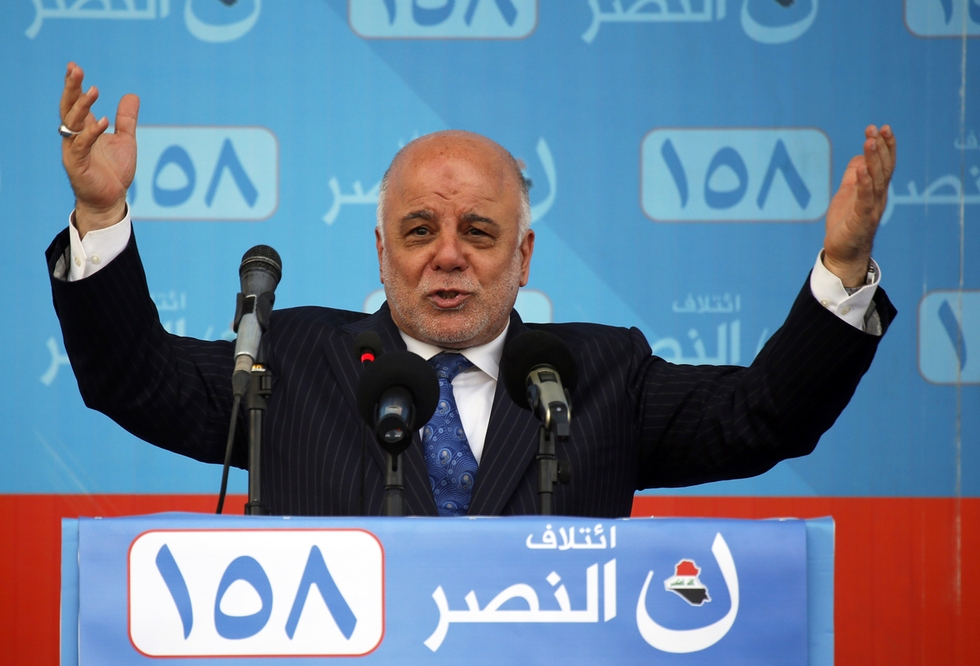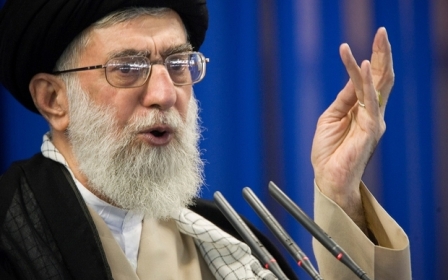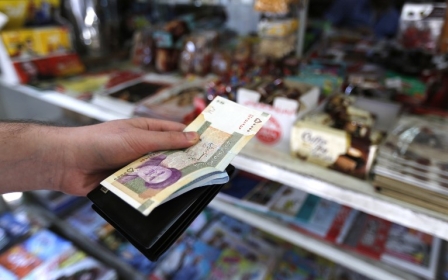Iraq's PM retracts his commitment to US sanctions on Iran

Iraqi Prime Minister Haider al-Abadi stepped back from his commitment to abide by new US sanctions on Iran on Monday, saying his government would only respect the dollar ban in transactions with Iran.
"I did not say we abide by the sanctions, I said we abide by not using dollars in transactions. We have no other choice," Abadi told a news conference in Baghdad.
Last week he described the US sanctions on Iran as a "strategic mistake" and "incorrect" but said that Iraq would abide by them to safeguard its own interests.
"We consider them (sanctions on Iran) a strategic mistake and incorrect but we will abide by them to protect the interests of our people. We will not interact with them or support them but we will abide by them," Abadi said.
Abadi's statement triggered criticism from Iraqi political parties that see Iran as an alley.
'I did not say we abide by the sanctions, I said we abide by not using dollars in transactions. We have no other choice'
- Haider al-Abadi, Iraq's PM
The United States and Iran, increasingly at odds, are Iraq's two biggest partners and the sanctions put Abadi's outgoing government in a difficult position.
The US sanctions target Iran's trade in gold and other precious metals, its purchases of US dollars and its car industry.
Asked if Baghdad would stop imports of commodities, appliances and equipment by government companies from Iran he said the matter was still being reviewed.
"We honestly have not made any decision regarding this issue until now."
On 7 August, US President Donald Trump pledged that firms doing business with Tehran would be barred from the United States, as new US sanctions against Iran took effect.
The US sanctions target Iran's purchases of US dollars, metals trading, coal, industrial software and the auto sector. Global oil prices rose last week on concern sanctions could cut world supply, although the toughest measures targeting Iran's oil exports do not take effect for four more months.
Iraq is a key market for Iranian products, and the two countries enjoyed $12bn trade volume between April 2017 and March 2018 in areas of oil, gas, religious tourism, and engineering services. Iran's exports to Iraq make up 18 percent of its total exports in 2017.
Iraq, where the major Shia shrines are located, is an important tourist destination for Iranians. In 2017, Iraq's revenue during one week of Ashura, a day celebrated by Muslims, was $100m, with pilgrims mainly coming from Iran and some Gulf countries.
Middle East Eye propose une couverture et une analyse indépendantes et incomparables du Moyen-Orient, de l’Afrique du Nord et d’autres régions du monde. Pour en savoir plus sur la reprise de ce contenu et les frais qui s’appliquent, veuillez remplir ce formulaire [en anglais]. Pour en savoir plus sur MEE, cliquez ici [en anglais].




